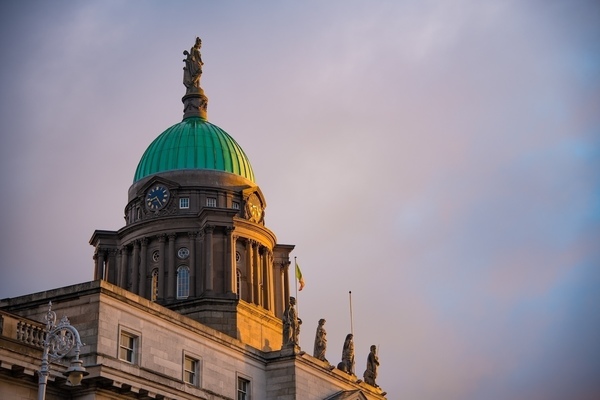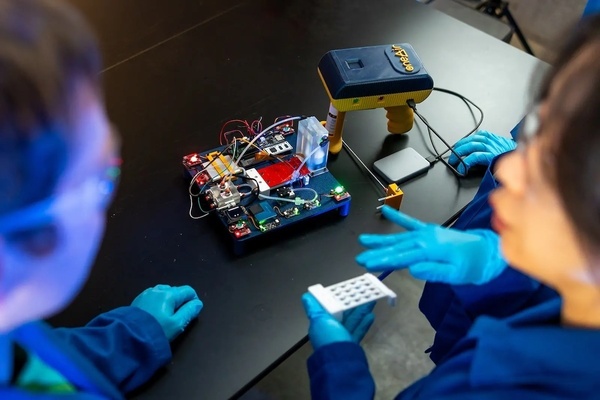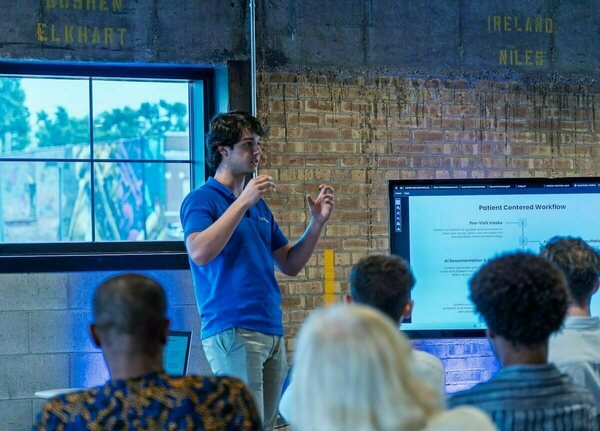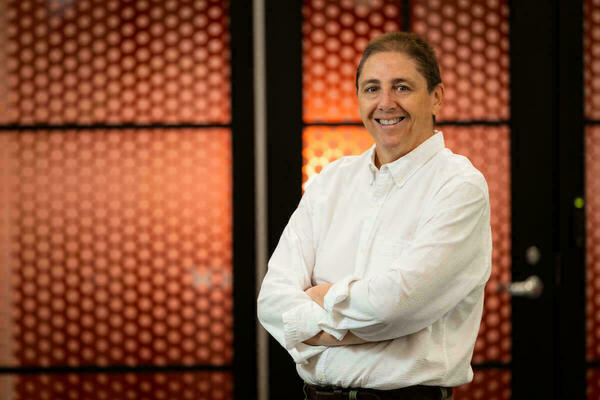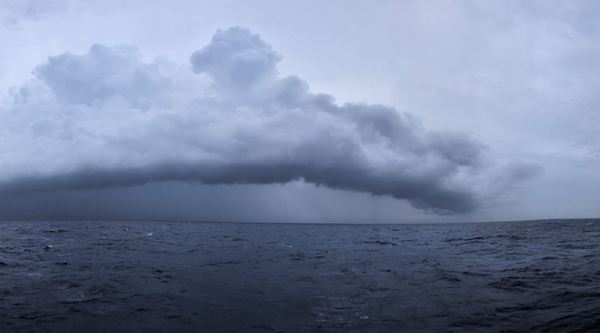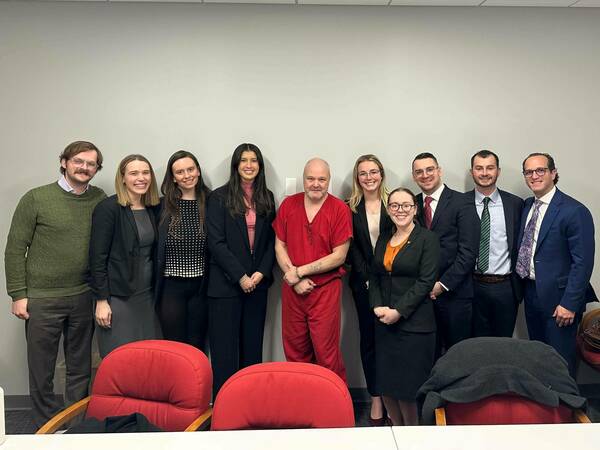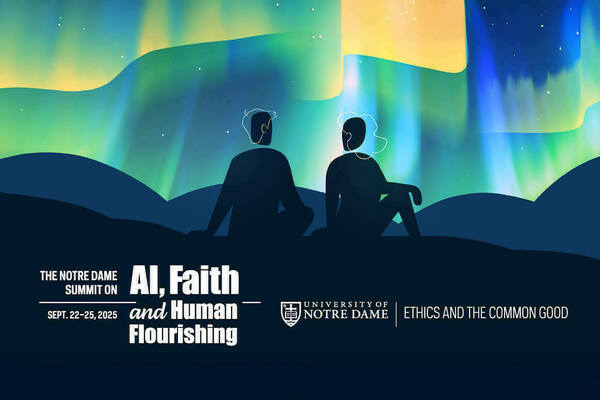2025 Naughton Fellowships awarded to four joint faculty projects
The University of Notre Dame’s Naughton Fellowship program has announced its faculty awardees for the 2025-2026 cohort. Faculty from leading Irish universities and Notre Dame have come together to work on four research projects as a part of the Naughton Faculty Accelerator program.
Funded by a gift from the Naughton family in 2008, the Naughton Fellowships foster leadership through international partnerships and stimulate collaborative research efforts. The mission of the Faculty Research Accelerator program is to catalyze and support collaborations at the leading research universities of Ireland and the University of Notre Dame, in order to foster deeper and stronger ties between both the institutions and the two countries.
Brian Baker, the Coleman Professor of Life Sciences at Notre Dame, said, “I extend my warmest congratulations to this year’s faculty fellows, and express my admiration for the dynamic and innovative work they are pursuing in their fields.”
Baker, who serves as the Naughton Fellowship Committee Chair, added, “We are grateful to the Naughton family for their support in contributing to a culture of international collaboration among faculty members.”
Margaret (Coad) McGuinness, assistant professor in Notre Dame’s Department of Aerospace and Mechanical Engineering, will collaborate with Pádraig Cantillon-Murphy, professor in the School of Engineering at University College Cork, on a project titled “Capsule Navigation in Image-Guided Gastrointestinal Interventions using Everting Toroidal Robotics.” The project will test the feasibility of a new paradigm in capsule endoscopy, which couples the autonomous capabilities of everting toroidal robotic propulsion with real-time navigation and visualization enabled by on-chip and wireless magnetic tracking, with the ultimate goal of navigating and imaging the entire gut system.
Meenal Datta, assistant professor in Notre Dame’s Department of Aerospace and Mechanical Engineering, will work with two Dublin-based colleagues on a project titled “Unveiling the mechanical determinants of plasma cell dyscrasias.” The objective of this collaboration is the development of a new microtissue model for studying the effects of mechanical stimuli on bone marrow, effects which may determine an individual’s likelihood of developing a plasma disorder, such as multiple myeloma, as they age. Datta’s collaborators are Despina Bazou, assistant professor in the Department of Biology and the Kathleen Lonsdale Institute for Human Health Research at Maynooth University, and David Hoey, professor of biomedical engineering in the School of Engineering at Trinity College Dublin.
Joanna Cecilia da Silva Santos, assistant professor in Notre Dame’s Department of Computer Science and Engineering, will work with Liliana Pasquale, associate professor in University College Dublin’s School of Computer Science, on a project titled “Context-aware Secure Code Generation using Large Language Models.” The researchers will collaborate to enhance the security of code generated by AI assistants by developing a framework that incorporates security-relevant contextual information in the code generation process, with the goal of alleviating the burden on developers in identifying and fixing security issues.
Cody Smith, Elizabeth and Michael Gallagher Associate Professor of Biology at Notre Dame, will collaborate with Michael-John Dolan, assistant professor in the Department of Genetics at Trinity College Dublin, on a project titled “Transcriptional Control of Microglial Myelin Clearance During Demyelination and Repair.” The researchers will investigate the genetic factors that regulate the function of microglia, the brain's resident immune cells. They will specifically investigate the clearance of myelin debris, a process which is critical for myelin regeneration and the halting of demyelinating diseases such as multiple sclerosis.
Applications for future Naughton Fellowships, including undergraduate, masters, and faculty fellowships, will open for submissions in the fall of 2025. To learn more, please visit naughton.nd.edu.
Contact
Erin Fennessy / Writing Program Manager
Notre Dame Research / University of Notre Dame
efenness@nd.edu / +1 574-631-8183
research.nd.edu / @UNDResearch / linkedin.com/company/undresearch
About Notre Dame Research
The University of Notre Dame is a private research and teaching university inspired by its Catholic mission. Located in South Bend, Indiana, its researchers are advancing human understanding through research, scholarship, education, and creative endeavor in order to be a repository for knowledge and a powerful means for doing good in the world. For more information, please visit NDR's website or NDR's LinkedIn.
Originally published by at naughton.nd.edu on September 10, 2025.
Latest Research
- Fighting for Better Virus DetectionAn electronic nose developed by Notre Dame researchers is helping sniff out bird flu biomarkers for faster detection and fewer sick birds. Read the story
- Notre Dame’s seventh edition of Race to Revenue culminates in Demo Day, a celebration of student and alumni entrepreneurship…
- Managing director brings interdisciplinary background to Bioengineering & Life Sciences InitiativeThis story is part of a series of features highlighting the managing directors of the University's strategic initiatives. The managing directors are key (senior) staff members who work directly with the…
- Monsoon mechanics: civil engineers look for answers in the Bay of BengalOff the southwestern coast of India, a pool of unusually warm water forms, reaching 100 feet below the surface. Soon after, the air above begins to churn, triggering the summer monsoon season with its life-giving yet sometimes catastrophic rains. To better understand the link between the formation of the warm pool and the monsoon’s onset, five members of the University of Notre Dame’s Environmental Fluid Mechanics Laboratory set sail into the Bay of Bengal aboard the Thomas G. Thompson, a 274-foot vessel for oceanographic research.
- Exoneration Justice Clinic Victory: Jason Hubbell’s 1999 Murder Conviction Is VacatedThis past Friday, September 12, Bartholomew County Circuit Court Judge Kelly S. Benjamin entered an order vacating Exoneration Justice Clinic (EJC) client Jason Hubbell’s 1999 convictions for murder and criminal confinement based on the State of Indiana’s withholding of material exculpatory evidence implicating another man in the murder.
- Notre Dame to host summit on AI, faith and human flourishing, introducing new DELTA frameworkThe Institute for Ethics and the Common Good and the Notre Dame Ethics Initiative will host the Notre Dame Summit on AI, Faith and Human Flourishing on the University’s campus from Monday, Sept. 22 through Thursday, Sept. 25. This event will draw together a dynamic, ecumenical group of educators, faith leaders, technologists, journalists, policymakers and young people who believe in the enduring relevance of Christian ethical thought in a world of powerful AI.



